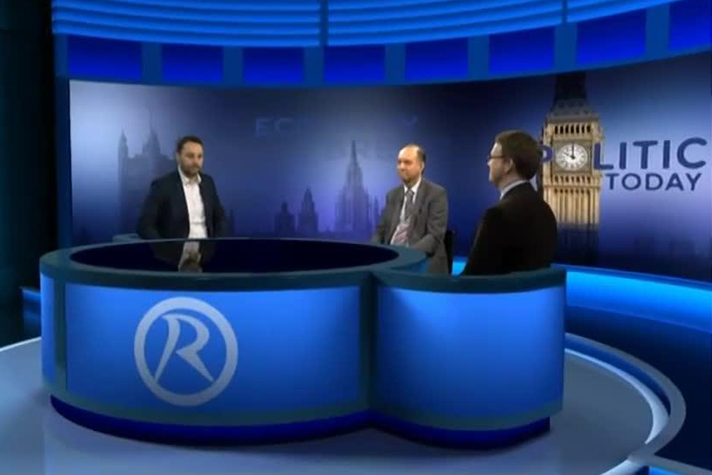
Franklin Graham has crossed the globe countless times, telling people about Jesus.
His plan to do the same in the United Kingdom has made its way into heated headlines, many pointing to the controversy it’s become.
While some groups say Graham is unwelcome in the U.K., others are protesting against venues and city councils that have said they’re backing out of hosting the evangelistic tour this spring. The issue has sparked needed conversation around the freedom of speech and religion—everywhere from British Parliament to the front sidewalk of the Glasgow City Council.
One of the latest discussions happened earlier this month on Politics Today, a program on Britain’s Revelation TV. Host Simon Barrett posed this question: “Is the ban on Franklin Graham speaking at these major U.K. venues a threat to religious freedom?”
“The basic truth of our faith is the Great Commission—go out into all the world and make disciples,” said Alistair Scott, U.K. director of the charity Joseph Storehouse. “And Acts, chapter 1 verse 8, ‘Be my witnesses.’ … If you’re not allowed to express what the Bible says, how can you be a witness?”
Scott was involved in Billy Graham Crusades years ago and remembers the evangelist speaking at Wembley Stadium.
“He spoke the truth according to what the Bible says, and people responded,” Scott said.
More than 73,000 filled Wembley during Billy Graham’s last London Crusade in 1989, with over 4,000 standing in pouring rain until the end to commit their lives to Christ.
While Billy Graham also met opposition in the U.K., the verbal attacks have intensified ahead of his son’s visit there decades later.
“Basically, it’s the same message, different times,” said Tim Vince of Christian Education Europe. “The world has changed, and the reason that these venues have struggled to accept the message that hasn’t changed is that they require Christians like us in schools, in missions, in churches, to preach a different message. …
“They want us to say the opposite of what the Bible is saying.”
God’s Word is clear on issues of sexuality and marriage, regardless of popularity or cultural shift. Yet demands from LGBTQ activists have called Graham’s Biblical stance “hate speech,” even as Franklin Graham invites them to the event to hear the message for themselves.
“We’re not here to preach against anyone, but we’re here to tell everyone how they can have their sins forgiven, and how they can have a relationship with God through faith in His Son, Jesus Christ,” Graham told the U.K.’s Premier Christian News last month.
“He’s been speaking what he believes in his heart. … He’s been speaking what the Bible says,” Scott said.
Still, as Graham prepares to visit cities in Scotland, England and Wales, there’s an underlying threat to evangelism each time a protest pops up. While protesters have every right to voice their opinions and concerns, the issue is in suppressing others.
“You have freedom of speech and expression only if you flow with the tide,” Scott explained. “If you come against it, they don’t want to hear it and they want to shut you down. … We need to be willing to fight, contend for our faith.”
Both he and Vince referenced the Pilgrims who left Britain and crossed the Atlantic 400 years ago in search of freedom to worship how they wanted. They fought for what they believed.
Scott and Vince said today’s Christians need that same spirit of boldness as they exercise their spiritual muscle. It’s clear many who disagree with believers would rather them keep religion to themselves, more of a personal thing.
“The whole essence of the Christian faith, actually it is in the public space,” Vince said. Jesus Himself spoke publicly, as did many of His followers. Yes, their message offended some, Vince added, but also pointed them to forgiveness, freedom and life.
“It is the issue and it is actually still in the convention of human rights that you can express your beliefs publicly. If we concede that, it is game over for Christian witness in the Western world,” he said.

